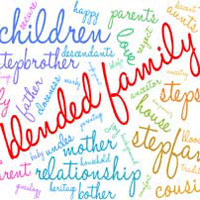 When divorced couples marry new partners and there are children involved, they become blended families. These kids can be from one or both new spouse’s previous marriages. The term, blended family, was unfamiliar to most people many decades ago, but statistics show that their numbers are increasing. Close to half of the married couples in this country end up getting divorced. These families can face many challenges, such as new living situations and financial issues. Careful preparation can smooth things along, and one way to do this is through estate planning.
When divorced couples marry new partners and there are children involved, they become blended families. These kids can be from one or both new spouse’s previous marriages. The term, blended family, was unfamiliar to most people many decades ago, but statistics show that their numbers are increasing. Close to half of the married couples in this country end up getting divorced. These families can face many challenges, such as new living situations and financial issues. Careful preparation can smooth things along, and one way to do this is through estate planning.
Why Estate Planning is Important
Proper estate planning supplies asset protection to remarried spouses and their children. Blended families that do not take care of this can be at risk for lost or delayed inheritances, former spouses taking assets, or problems with childcare. It is essential to update insurance policies. Having the wrong beneficiary could mean that the monies will not benefit the blended family members. Spouses should also update their chosen investment account beneficiaries on their retirement funds. Otherwise, they could end up going to a former spouse.
Estate Planning Musts
Once the wedding is over and the new, blended family is settled in, creating a new will or updating the old one should be a priority. Trusts are excellent tools, because they specify the spouse’s wishes upon their death. For example, a remarried spouse can specify that they want their children from the first marriage to evenly split the inheritance with the children from the second one. A trust can also protect the assets for the children should the surviving spouse remarry again.
Remarried couples should also consider keeping their assets separate. Even though they may share expenses like mortgages and car payments, their monies could be at risk should a former spouse make a claim. In addition, debts incurred from the first marriage could come into play. Any separate property brought into a second marriage by each spouse could also be at risk. Having paperwork such as ownership documents, registrations, and titles in order is also recommended.
Trusts
When putting together a trust, it is important to carefully choose a trustee that will carry out the spouse’s wishes. There are different kinds of trusts, which can be explained in detail by a knowledgeable wills and estates lawyer. One example is an Irrevocable Life Insurance Trust. These name the children as the policy’s sole beneficiaries and will prevent them from losing their inheritances.
Another type of trust is a Spray Spendthrift Trust. These direct that the inheritance benefits both the children as well as the remarried spouse. Revocable trusts are also good for blended families, as they distribute assets for new spouses and their children, along with the prior children. Additional options include marital trusts, Family Limited Partnerships for blended families that own real estate, and Limited Liability Companies.
Chester County Wills and Estates Lawyers at Eckell Sparks Help Blended Families with Estate Planning
Getting your affairs in order is the best way to protect your family’s assets. Contact a skilled Chester County wills and estates lawyer at Eckell, Sparks, Levy, Auerbach, Monte, Sloane, Matthews & Auslander, P.C. for all your estate planning needs. Call 610-565-3701 or complete an online form today for a free consultation. We have offices in Media and West Chester, Pennsylvania, and we represent clients in Delaware County, Chester County, and Montgomery County.

